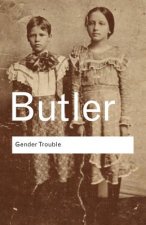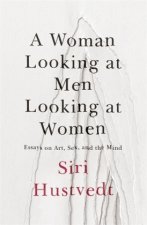
Code: 04513648
Bad Kids
by Barry C. Feld
Within the past three decades, social and legal changes have transformed the juvenile court from a nominally rehabilitative welfare agency into a second-class criminal court for young offenders. Recent efforts to "toughen" juven ... more
- Language:
 English
English - Binding: Paperback
- Number of pages: 392
Publisher: Oxford University Press Inc, 1999
- More about this

You might also like
-

Endgame at Stalingrad: The Stalingrad Trilogy, Volume 3
67.74 € -

Beteiligung der in der Produktion tatigen Mitarbeiter am Shareholder Value
112.85 € -1 % -

Living Mission Interculturally
26.67 € -12 % -

History Of The United States Marine Corps
31.70 € -

Irren-Heil- und Pflegeanstalt Thonberg
22.04 € -1 %
Give this book as a present today
- Order book and choose Gift Order.
- We will send you book gift voucher at once. You can give it out to anyone.
- Book will be send to donee, nothing more to care about.
More about Bad Kids
You get 192 loyalty points
 Book synopsis
Book synopsis
Within the past three decades, social and legal changes have transformed the juvenile court from a nominally rehabilitative welfare agency into a second-class criminal court for young offenders. Recent efforts to "toughen" juvenile justice policies have resulted in increasingly harsh sanctions that fall disproportionately on minority youths. In this provocative new book, Barry Feld examines what went wrong with the juvenile court and proposes an alternative model for youth crime control and child welfare. The Progressive reformers who created the juvenile court a century ago saw children as relatively blameless and innocent. But recent decades of rising crime rates associated with urban decay have strained this tolerant view of young offenders. Feld relates the 1967 Supreme Court decision In re Gault to the broader social and legal changes associated with the civil rights movement and the Warren Court's "Due Process Revolution." Although gault mandated more elaborate procedural safeguards in delinquency hearings, ironically, those protections legitimated the imposition of more punitive sanctions. Since Gault, Feld argues, three decades of judicial, legislative, and administrative reforms have conducted a form of "criminological triage." At the "soft end," reforms have shifted noncriminal status offenders, primarily female and white, out of the juvenile justice system into a "hidden system" made up of private sector mental health and chemical dependency facilities. At the "hard end," states transfer increasing numbers of young offenders, disproportionately minorities, to criminal court for prosecution as adults. Meanwhile, juvenile courts punish more severely those delinquents-again disproportionately minorities-who remain within the increasingly criminalized juvenile justice system. Feld attributes the current state of affairs to a conceptual flaw inherent in the juvenile court. The juvenile justice system attempts to combine social welfare and social control functions in one organization, but inevitably fulfills both missions badly because of the inherent and irreconcilable contradictions between them. Progressive reformers situated the juvenile court on a number of cultural, legal, and criminological fault lines, where the ideas of child and adult, determinism and free will, immature and responsible, treatment and punishment collide. The past three decades have witnessed a shift from the former to the latter of these binary pairs in response to the racial transformation of cities, the increase in serious youth crime, and the erosion of the rehabilitative assumptions of the juvenile court. The solution, Feld argues, is to uncouple social welfare from criminal social control. States could try all offenders in one integrated criminal justice system with appropriate modifications to accommodate the youthfulness of younger defendants: a graduated, age-culpability sentencing system, separate youth correctional facilities, and the like. Formally recognizing youthfulness as a mitigating factor would provide youths with greater protections and justice than they currently receive in either the juvenile or criminal justice systems. At the same time such a strategy would enable public policies to address directly the social welfare needs of all young people.
 Book details
Book details
Book category Books in English Society & social sciences Society & culture: general Social groups
76.20 €
- Full title: Bad Kids
- Subtitle: Race and the Transformation of the Juvenile Court
- Author: Barry C. Feld
- Language:
 English
English - Binding: Paperback
- Number of pages: 392
- EAN: 9780195097887
- ISBN: 0195097882
- ID: 04513648
- Publisher: Oxford University Press Inc
- Weight: 555 g
- Dimensions: 234 × 155 × 25 mm
- Date of publishing: 18. March 1999
Trending among others
-

Women Who Run with the Wolves
9.86 € -17 % -

Manipulated Man
14.19 € -16 % -

Women Who Run With The Wolves
13.48 € -29 % -

The Mastery of Love
12.27 € -19 % -

The Velvet Rage
16.30 € -22 % -

Hillbilly Elegy
12.68 € -36 % -

Second Sex
15.09 € -4 % -

Who Cooked the Last Supper?
19.82 € -5 % -

Humans of New York
25.76 € -16 % -

Lean In
12.78 € -23 % -

Gender Trouble
27.17 € -

Why Does He Do That?
16.50 € -17 % -

Letters to a Young Muslim
11.77 € -24 % -

Raising Kanye
16 € -20 % -

Ladies' Book of Etiquette and Manual of Politeness
11.87 € -25 % -

Men, Women, and Chain Saws
18.21 € -12 % -

Witches, Witch-hunting, And Women
12.88 € -14 % -

Black Elk Speaks
20.53 € -9 % -

History of Masculinity
13.38 € -19 % -

It's a Guy Thing
19.82 € -

North American Indians
15.09 € -20 % -

Vindication of the Rights of Woman
7.34 € -27 % -

Dona Gracia of the House of Nasi
23.25 € -19 % -

Duke of Naxos of the House of Nasi
23.35 € -18 % -

Beginner's Ladino with Online Audio
17.31 € -16 % -

Contemplation of the Holy Mysteries
23.35 € -

Exile and Pride
20.63 € -13 % -

The Politically Incorrect Guide to Jihad
18.21 € -20 % -

Between the World and Me
21.33 € -17 % -

How to Be Successful Without Hurting Men's Feelings
11.77 € -29 % -

Believing Women in Islam
33.92 € -

Think Like a Monk
14.49 € -29 % -

Iron John
15.70 € -25 % -

Goddesses in Everywoman
12.17 € -22 % -

The Way of Men
14.49 € -14 % -

The Autobiography of Malcolm X
10.46 € -7 % -

When God Was A Woman
19.62 € -1 % -

Zami
10.06 € -24 % -

Woman Looking at Men Looking at Women
12.17 € -27 % -

Tom of Finland. The Complete Kake Comics
21.13 € -

Desert Flower
10.06 € -24 % -

Uncle Tom's Cabin
4.82 € -19 % -

Indigenous Peoples' History of the United States
15.39 € -15 % -

Cities for People
62.91 € -1 % -

Deepest Well
16.50 € -17 % -

Like She Owns the Place
17.31 € -21 % -

Hillbilly Elegy
21.03 € -31 % -

Autobiography of Malcolm X
10.16 € -23 % -

Male Brain
12.37 € -21 %
Collection points Bratislava a 2642 dalších
Copyright ©2008-24 najlacnejsie-knihy.sk All rights reservedPrivacyCookies



 15549 collection points
15549 collection points Delivery 2.99 €
Delivery 2.99 € 02/210 210 99 (8-15.30h)
02/210 210 99 (8-15.30h)